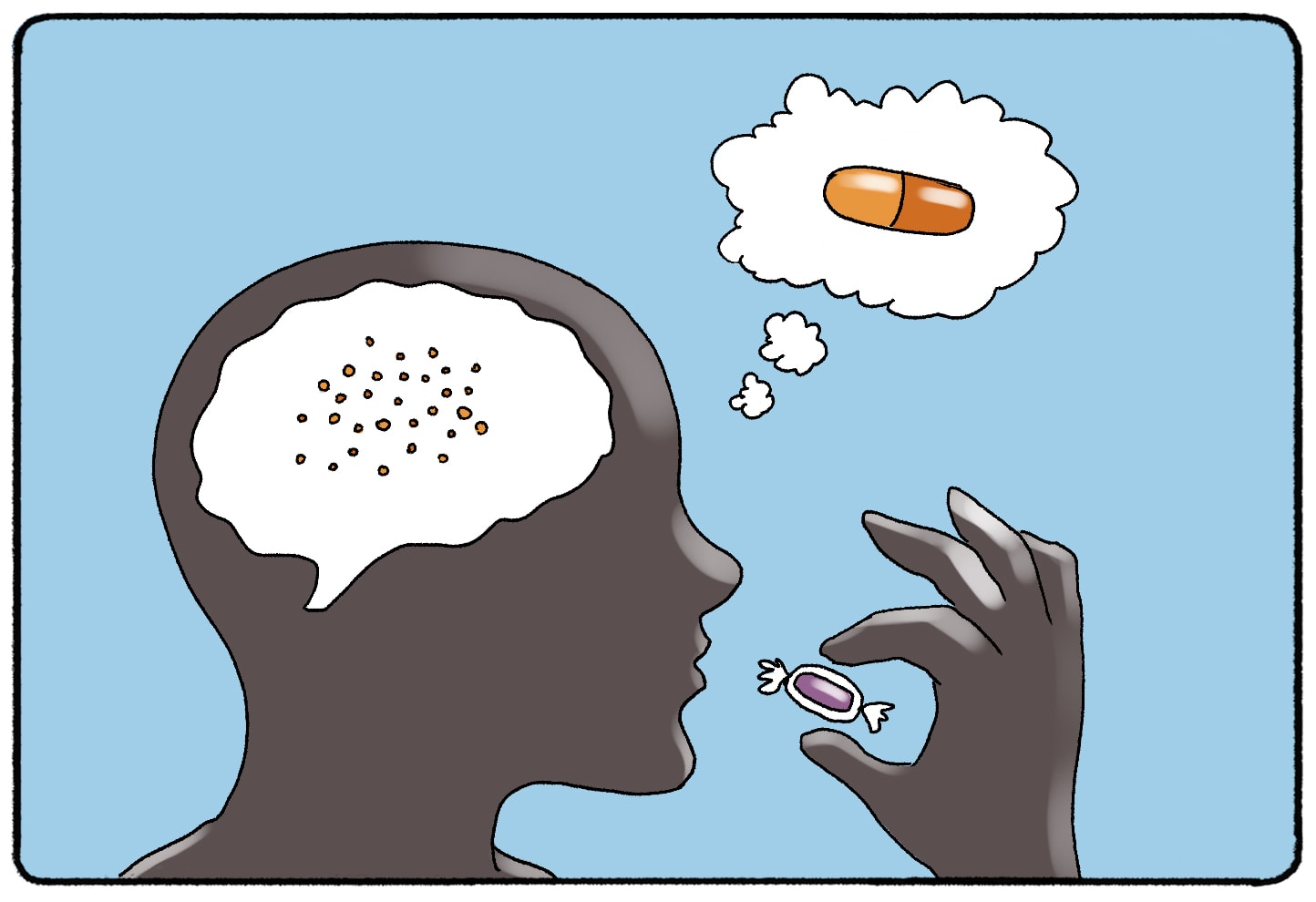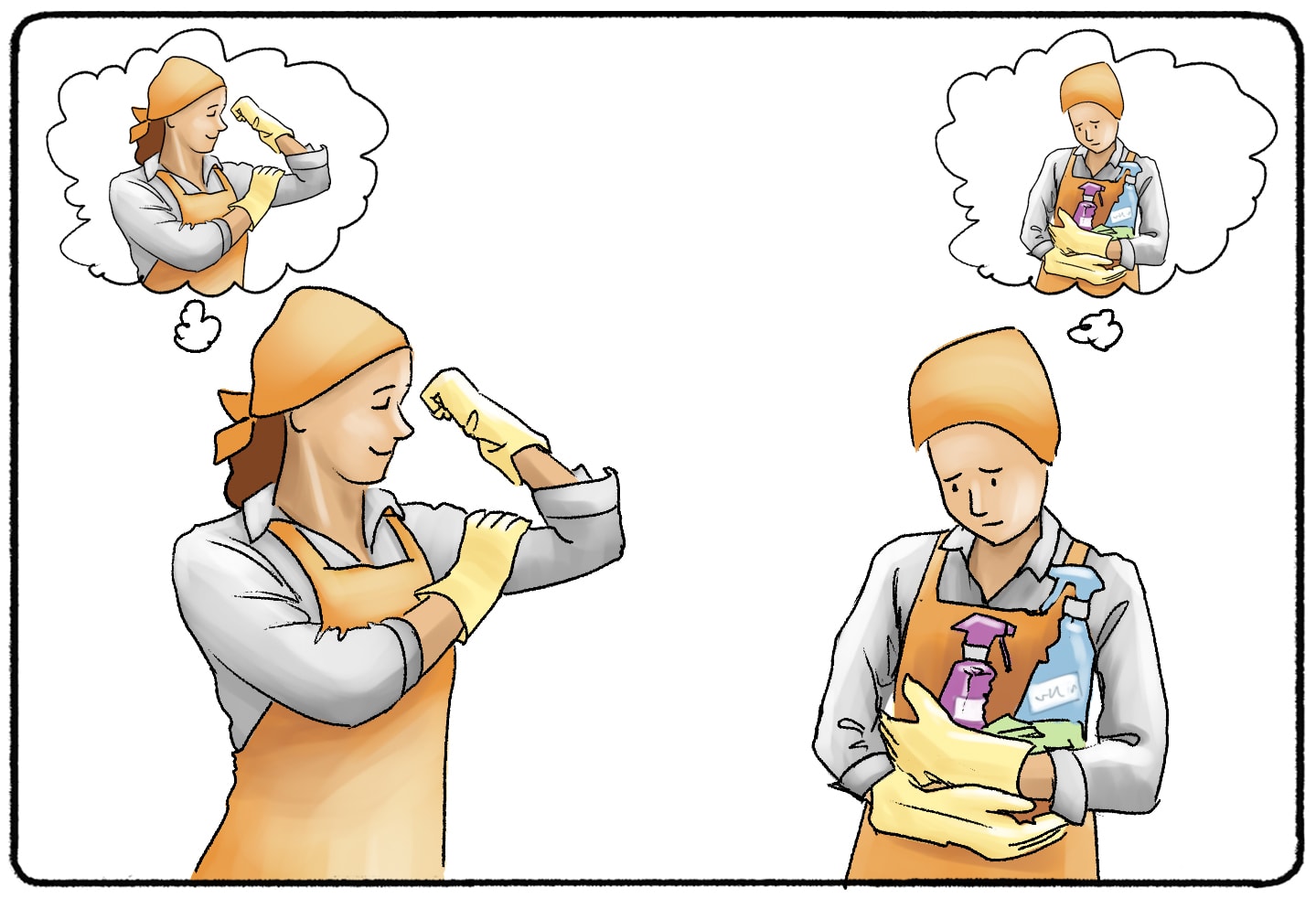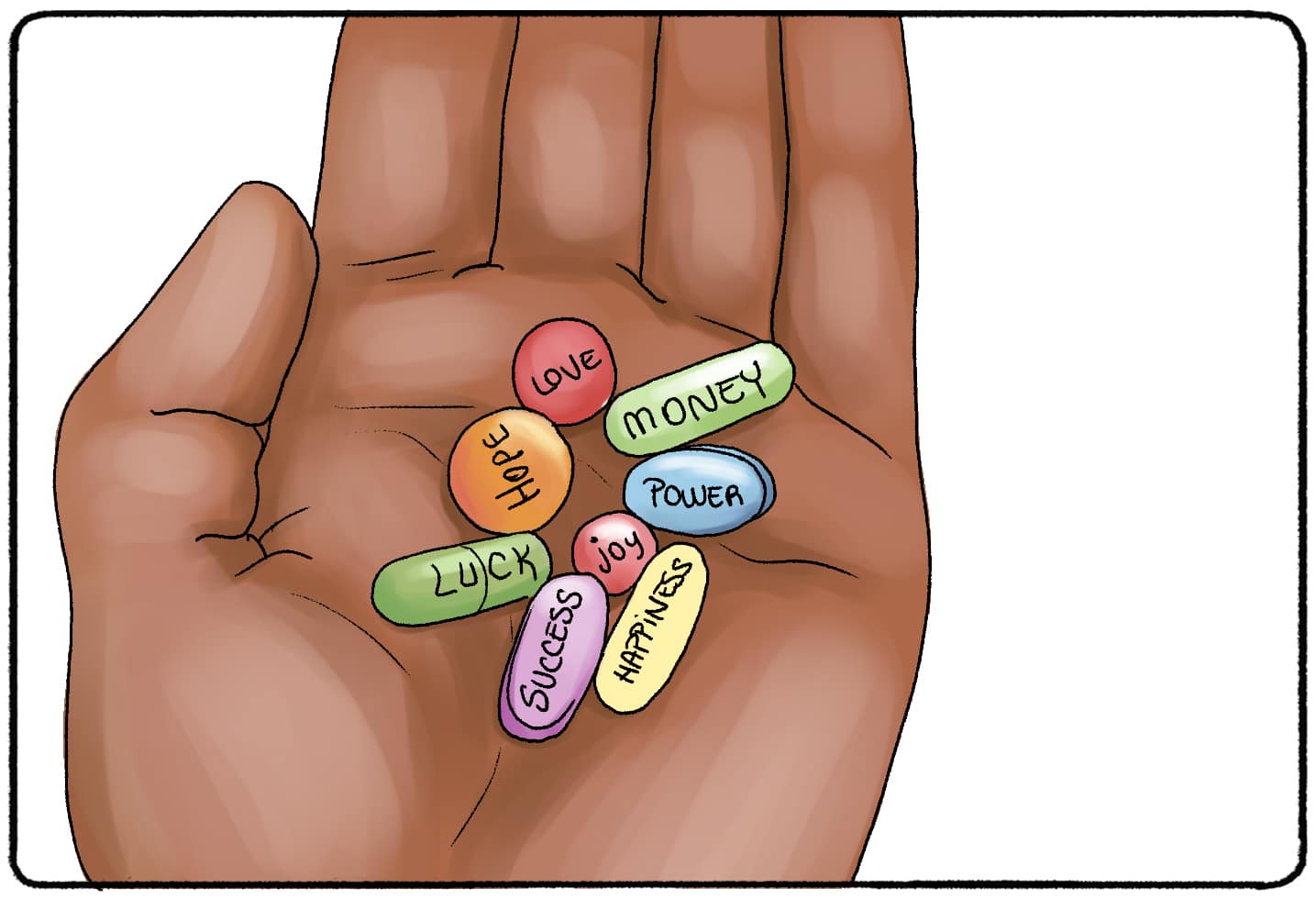You’ve probably heard stories about people who recovered from illness after being given medication that they didn’t know was just sugar pills. The idea seems bizarre, but the phenomenon isn’t all that uncommon. In the scientific community, it’s known as the placebo effect.
What is the Placebo Effect?
The term “placebo effect” describes the positive effects that the patient experiences after taking a placebo, or a treatment with no relevant therapeutic effects. It’s the result of their belief in the treatment’s power to help them feel better rather than the treatment itself.
The Placebo Effect is mind over matter and a demonstration of the mind-body connection.
Examples of Placebo Effect and Nocebo Effect
A popular story about these effects is the case of Mr. Wright. In 1950, Dr. Bruno Klopfer was approached by his patient, Mr. Wright, about a new experimental cancer treatment called Krebiozen. Mr. Wright was suffering from advanced cancer of the lymph nodes and had tumors the size of oranges throughout his body. He knew he didn’t have much time left. Dr. Klopfer gave Mr. Wright just one dose of the medicine and in a few days the patient’s health was significantly better.
After 10 days, there was no trace of cancer in his body and he was released from the hospital feeling great. But two months later, Mr. Wright came across an article about Krebiozen claiming that it was not an effective treatment at all. He became depressed and his cancer came back. Dr. Klopfer then decided to tell Mr. Wright that he had a new version of Krebiozen with an improved formula that was more effective and administered a dose. What Mr. Wright didn’t know was that he was actually injected with a bit of distilled water. Regardless, his tumors disappeared and he was in great health for another two months. He then saw the official statement that Krebiozen was ineffective, and he died two days later.
The Nocebo Effect
Every coin has two sides. While the placebo effect is when a person’s belief makes them feel good, the nocebo effect is when a person’s belief makes them feel bad. It’s sometimes seen in patients after they’re told about side effects of their treatment or they’re given a grim prognosis. If they start to believe that they’ll experience negative things, they can, even if they’ve only been given a harmless sugar pill.
Mr. Wright’s story is a perfect example of both the placebo effect and nocebo effect at work. His belief in the treatment he was receiving caused him to get better, and his belief that it was useless caused him to get sicker. The medicine had no physiological effect on his body; it was entirely his thoughts and feelings about it that caused his body to respond.
Is The Placebo Effect Real? Reddit Says Yes!
This Reddit post contains hundreds of products sold under the placebo effect. Maybe you have been tricked by them yourself!
How Does the Placebo Effect Work?
So how does the placebo effect work? Scientists aren’t entirely sure, but there are a few theories. One is the subject-expectancy effect, which is when people unconsciously change their reaction to match the reaction they’re told they will have. Another is classic conditioning, which suggests people experience improvement with medicine because that’s what they’ve come to expect. Both theories are based in the idea that the patients' expectations contribute to a particular result.
But it’s not only in the patient’s head; their expectations lead to real, physical responses that can be measured. In a 2004 study at the University of Michigan, participants were given painful jaw injections while their brains were monitored using a PET scanner. When they were given placebos and told that they were painkillers, every person’s brain scans showed activation in the parts of the brain that process and respond to pain. It was their belief in the placebo caused their pain relief systems to kick in. In other studies, effects like relaxation of muscles and nerves have been documented as well. It’s hard evidence that our minds and the way we think can affect our bodies.
How to Use the Placebo Effect
And because it’s the mind at the root of the physical change, many people claim it’s possible to take advantage of the placebo effect to benefit our bodies in a variety of ways. It’s just a matter of picking something to act as your placebo and forming expectations about the outcome of using it. For example, there was a study done where two groups of hotel maids were monitored: one group acted as the control and continued to work as usual while the other group was told that their daily work was good exercise. The maids who believed they were getting exercise lost weight and lowered their blood pressure. In their case, their activity was their placebo and their expected outcome was that it would benefit their bodies in the way that exercise does—better health and weight loss.

So what do you want to change? If you want to lose weight, expect your daily activities or the food you eat to be fat-burning. If you want to grow more hair, expect your shampoo to stimulate its growth. But it’s not enough to just decide—you have to form a solid belief, and that’s the tricky part. As mentioned before, one reason why placebos seen as medicine help with healing is that people have been conditioned to see medicine as healing. If you can condition yourself to believe the activity you’re doing gives the outcome you want, it’s possible to see it happen.
Mindfulness and Affirmations to Secure Placebo Effect
So start with repetition. Tell yourself over and over, especially while doing the activity or taking the substance that is acting as your placebo, that it will result in your desired outcome. The idea will start to sink in and you’ll be forming a belief that your body will then respond to physically. Another option is to use meditation or hypnosis to help solidify that belief. While in the mental states associated with meditation or hypnosis you are more suggestible and more open to accepting new information.
Some experts recommend also attaching emotion to help set the belief and to get the brain responding to it. While you’re repeating the new belief you’re trying to integrate, something like “doing X will cause Y to happen”, imagine how it would feel to experience that outcome. You might feel happiness, satisfaction, gratitude… any strong, positive emotion is said to be helpful. And that makes sense; after all, patients who are hopeful and excited about the idea that their new medicine will make them feel better are more likely to experience positive change on a placebo.
Skipping the Placebo
Another interesting concept is achieving the placebo effect without anything acting as a placebo. Some believe it’s possible to skip the action you’ve been performing or the product you’ve been using and just go straight to convincing yourself that your body is capable to doing the thing you want it to, whether that’s healing an ailment, changing your mood, losing weight, or whatever other physical change you want to see. It’s typically easier to form a belief using something as a placebo, but for people who are more open to suggestions and committed to changing their expectations, apparently, it can be done.

Whether we recognize that our mind impacts our bodies or not, it’s becoming increasingly clear with scientific studies and anecdotal evidence that there’s a link between the two. If we can get ourselves into the habit of thinking in certain ways and believing certain things, we can change our bodies and heal from all kinds of illnesses. The placebo effect and the mind-body connection are still something of a mystery, but there’s no doubt that a world of possibilities will open up when we learn exactly how it works.



